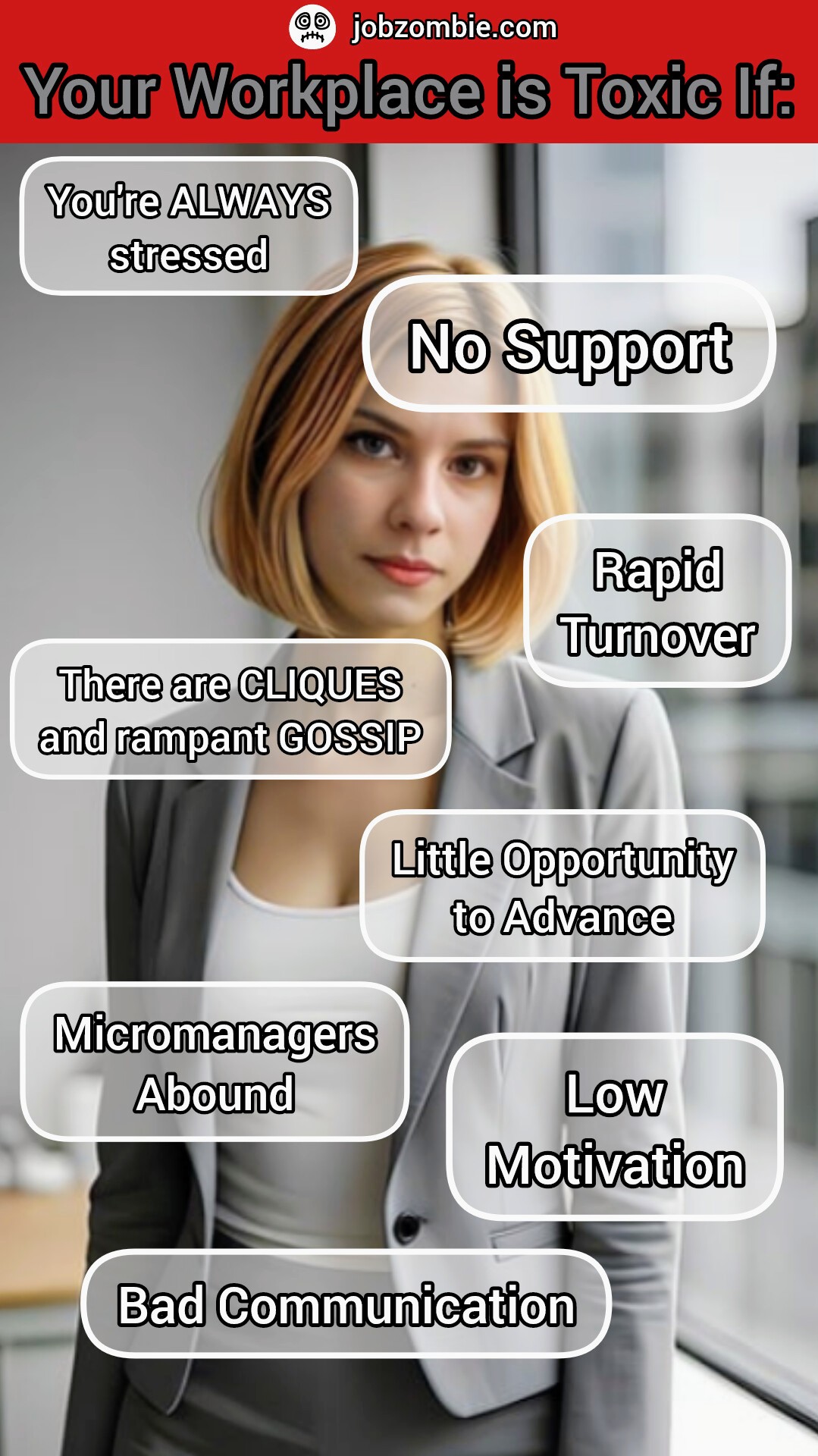Is Your Workplace Toxic? 8 Crucial Signs and Solutions.

Navigating the complexities of a workplace can be challenging, and recognizing signs of a toxic environment is crucial for maintaining your mental and emotional well-being. Let’s explore eight common indicators of a toxic work environment and some healthy strategies to cope with them.
1. You’re ALWAYS Stressed
Constant stress can stem from unrealistic deadlines, excessive workloads, or lack of resources. It can lead to burnout and negatively impact your physical and mental health.
Solution: Prioritize self-care by setting boundaries, taking regular breaks, and practicing mindfulness techniques. Communicate with your manager about your workload and seek adjustments if necessary. Engaging in regular physical activity and hobbies outside of work can also help alleviate stress.
2. Lack of Support
A lack of support from colleagues and management can leave you feeling isolated and overwhelmed. It can make it difficult to accomplish tasks and lead to a sense of inadequacy.
Solution: Seek out allies within the organization, such as a mentor or a supportive colleague. Building a network outside of your workplace can also provide valuable support. Don’t hesitate to communicate your needs and seek assistance when necessary.
3. Rapid Turnover
High employee turnover is often a red flag indicating underlying issues such as poor management, low morale, or inadequate compensation. It can disrupt workflows and create instability.
Solution: If you notice high turnover, try to understand the reasons behind it. Engage with HR or management to discuss concerns and potential improvements. In the meantime, focus on your own professional development and keep your resume updated.
4. CLIQUES and Rampant GOSSIP
Cliques and gossip can create a divisive and hostile work environment. It can lead to feelings of exclusion and mistrust among team members.
Solution: Maintain professionalism and avoid participating in gossip. Foster positive relationships by being inclusive and collaborative. If you feel comfortable, address any issues directly with those involved or seek guidance from HR.
5. Little Opportunity to Advance
A lack of advancement opportunities can be demoralizing and hinder your career growth. It can lead to feelings of stagnation and frustration.
Solution: Take charge of your career by seeking out professional development opportunities, such as courses or certifications. Discuss your career goals with your manager and explore potential pathways for growth within the organization. If necessary, consider exploring opportunities outside your current company.
6. Micromanagers Abound
Micromanagement can stifle creativity and independence, leading to decreased job satisfaction and increased stress.
Solution: Build trust with your manager by communicating openly about your progress and challenges. Seek regular feedback and propose more autonomous work arrangements. Demonstrating your reliability and competence can help reduce micromanagement tendencies.
7. You Have Low Motivation
Low motivation can result from a lack of recognition, meaningful work, or a negative work culture. It can affect your productivity and overall job satisfaction.
Solution: Identify what motivates you and seek to incorporate those elements into your work. Set personal goals and celebrate small achievements. Engage in tasks that align with your interests and strengths. Seeking feedback and recognition from peers can also boost motivation.
8. Poor Communication
Poor communication can lead to misunderstandings, mistakes, and a lack of direction. It can create a chaotic and inefficient work environment.
Solution: Proactively seek clarity by asking questions and confirming details. Advocate for regular and transparent communication channels within your team. Practice active listening and provide constructive feedback to foster better communication.
CONCLUSION
Remember, recognizing these signs is the first step towards creating a healthier work environment. By implementing these strategies, you can improve your workplace experience and foster a more positive, supportive atmosphere. Stay resilient and take charge of your professional well-being.
All The Best!
RBCA


